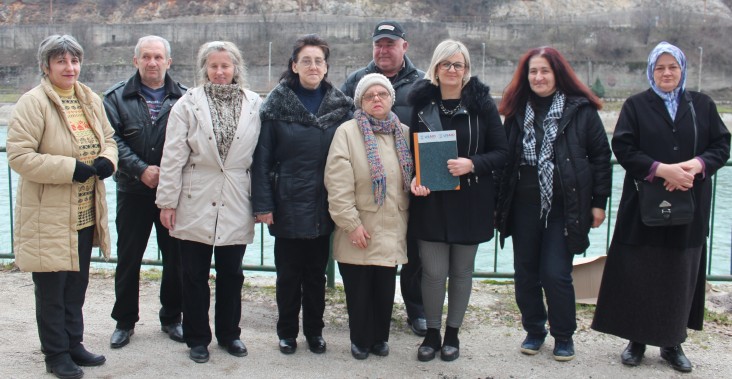Speeches Shim

We all want to be happy, but when making other people happy is what brings you happiness, you can still face a lot of obstacles. Sanja Idrizović, from the town of Konjic in Bosnia and Herzegovina (BiH), experienced this firsthand. She studied psychology so she could help people heal emotionally and psychologically in order to live healthier, happier lives.
After Idrizović completed her studies, her job search was not so successful. She worked only occasionally and felt she was giving little. She wanted to give much more. Her resolve grew even stronger as she witnessed her fellow citizens become alienated from society because of hardship, poverty and health issues. She decided to take matters in her own hands, get some help, and establish her own center for psychological counseling.
Two years ago, she developed a business plan and applied for assistance from a USAID program that supports businesses owned by marginalized women in BiH. As part of the program, Konjic municipality provided assistance to secure premises for the center, which USAID furnished.
In a short time, the center has become a refuge for many members of the community, and Idrizović now provides much-needed services to persons with psychological difficulties, children with developmental disabilities, and people who just need to talk.
Her success is no small feat. In Konjic, a small town on the Neretva River 60 kilometers (38 miles) from the BiH capital of Sarajevo, going to see a psychologist is still considered taboo, a topic that is never part of the neighborhood chatter.
“It’s hard, but you have to forge on,” says Idrizović. “People are becoming braver and more aware that they need help, that they can’t and don’t have to solve all their problems alone. I don’t pick and choose who I work with. My door is open to everyone.”
In one of her workshops, about a dozen men and women had come seeking respite, a place to talk about things that make their lives bitter or happy or sad, to be understood and not pushed away, back to the margins of society.
“We’re here to learn, talk and laugh. We have learned that we only get one life to live, and we should try to make it as happy as possible,” one of the participants said.
After that workshop, Idrizović was running off to another session. She said she does not mind walking the streets of Konjic to visit those who cannot come to her center. It’s not about doing big things; it’s about doing small things with a big heart, she said with a smile.
Idrizović has succeeded where many have failed: She won the battle against taboos and prejudice. Many of her fellow citizens now seek help fearlessly and are even willing to pay a token amount for it — even those who can barely afford it.
Idrizović is one of more than 200 women in BiH who have received support from USAID’s Marginalized Populations Support Program and their local municipalities to launch and grow their own businesses, providing them with livelihoods and independence, and restoring their faith in a better future. The program is designed to help groups underrepresented in BiH society, such as women, youth, people with disabilities, Roma and the LGBTI community.
LINKS

Comment
Make a general inquiry or suggest an improvement.